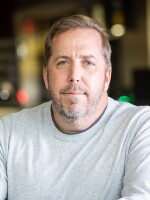After more than a year of lists and speculation, Austin's bid to secure Amazon's second headquarters is over. According to NPR, Austin joins a long list of more than 230 cities that competed in the race for an unheard-of prize: the promise of 50,000 jobs from the ecommerce juggernaut.
That prize has now been split in two – between Arlington, Va., and a neighborhood just across the East River from Manhattan. So what’s to come for Austin and the scores of other cities that didn't get a call from Amazon?
Aiesha Glover helped lead the effort to recruit HQ2 for one of those also-rans, Newark, N.J. She says her efforts with the Newark Community Economic Development Corp. to recruit HQ2 won't go to waste.
"It wasn’t just all this energy and resources and manpower put into the actual bid," Glover says. "This is more our playbook now. We have data and statistics and reports and graphics that we’ll just continue to use with our other corporate attraction efforts."
Glover says Newark wasn't waiting around for Amazon, and that the city is already using that playbook to lure other big employers.
"I frequently say, 'No one expected Newark to be on the list,'" she says. "So, it was a great way to make sure that folks understood all of the assets, like all the tech, the talent, the infrastructure, our location, our diversity. You know, what landed us on that list in the first place is reason enough for corporations that otherwise may not have thought about Newark to now consider us."
Other companies will have a lot of places to consider, if they’re in the market to relocate.
"The HQ2 process has been a great platform for these 20 markets – really to promote themselves to a global corporate audience," says John Boyd, principal with the John Boyd Company in Princeton, N.J..
His company consults with large corporations on major and minor moves. Once upon a time, it helped Dell with its Round Rock campus.
Boyd says this has been a big win for the company, because it has used news stories about the competition – like this one – to promote the Amazon brand.
And with Amazon's final decision, he says, comes a consolation prize for those cities that lost out – a chance to repurpose those offers to the likely logjam of corporate relocation decisions that were waiting on an HQ2 decision.
Richard Florida, author of Rise of the Creative Class and professor at the University of Toronto’s School of Cities, agrees, but says Amazon's HQ2 bid process has set a concerning precedent.
"I think it’s going to open up a literal cascade of every other company saying, 'Look, this RFP process can really work for us, too,'" he says. "You know, it never was done like that. Corporations usually figured out where they want to go, because they know. And they have a little bit of a game and they took some incentive, but not a whole lot in most cases. This opens up something that is completely dangerous."
Florida worries cities will no longer compete on the basis of talent and amenities – but on incentives.
"Maybe in the wake of this, after these communities realize how badly abused they’ve been, maybe these mayors ... will say enough is enough, once and for all," he says.
But, while Austin may have missed out on those 50,000 jobs, the Austin Chamber of Commerce touted the city's inclusion among the top 20 contenders and emphasized Amazon's current employment of more than 6,000 people in the Austin area at its office in the Domain, Whole Foods headquarters downtown and its distribution center in San Marcos.
"Amazon already calls our region home," the chamber said.






